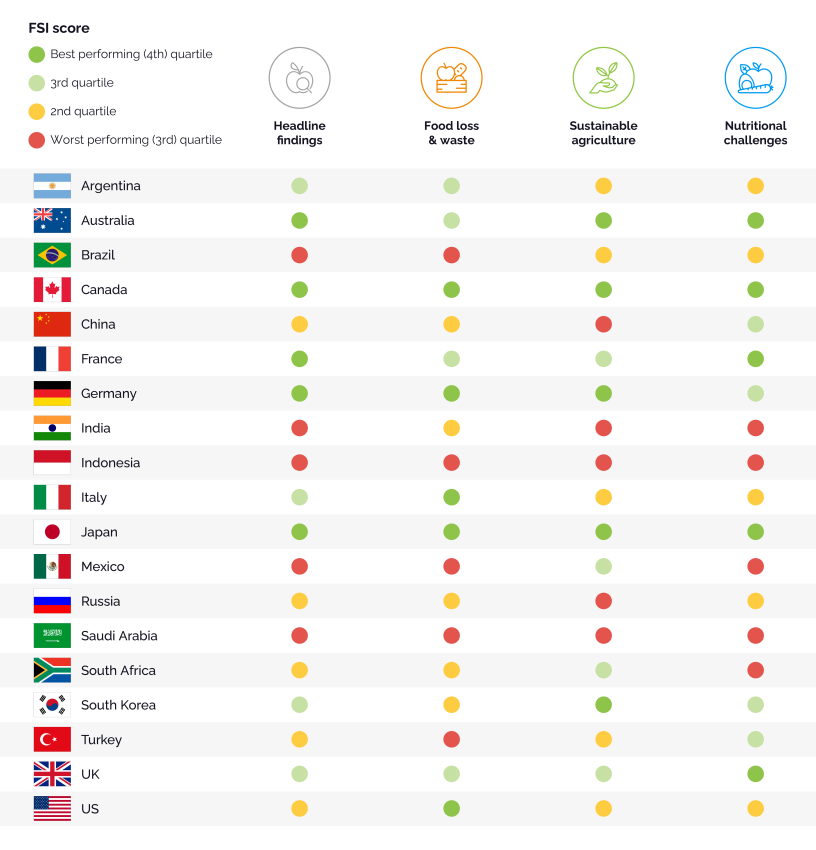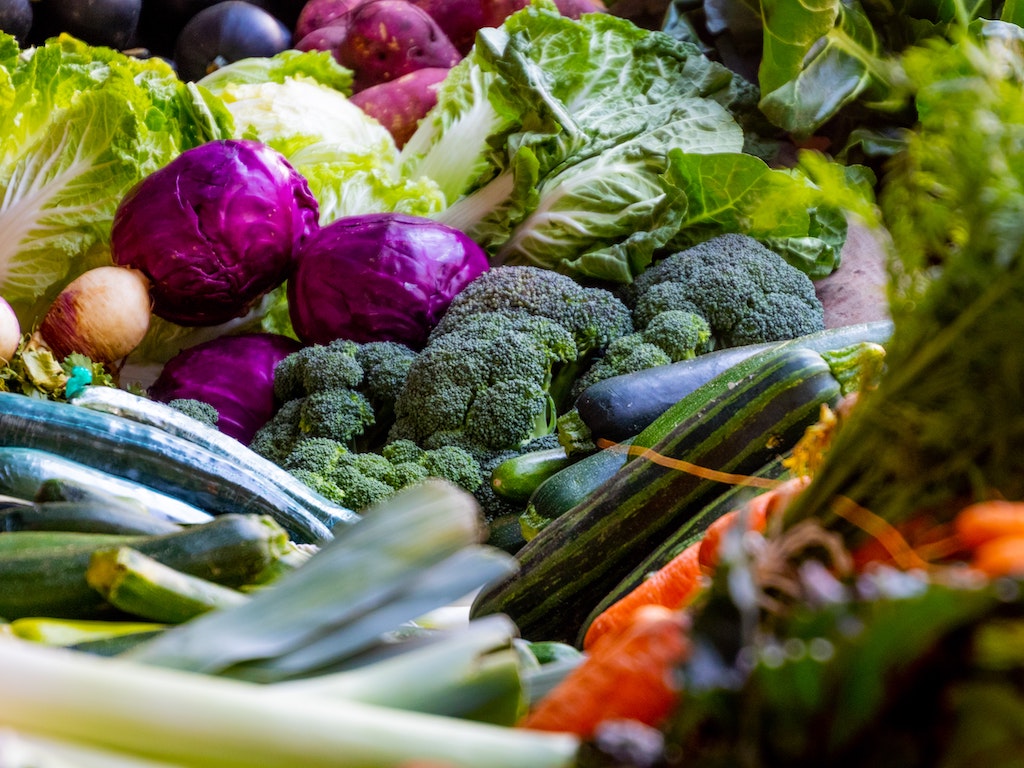4 Mins Read
The world’s largest economies are still not showing enough leadership on food sustainability, a new index shows. In the latest Food Sustainability Index (FSI), experts concluded there was “room for improvement” for G20 nations to address food waste, sustainable agriculture and nutrition.
The index, published on Wednesday (July 14) was compiled by the Economist Intelligence Unit (EIU) and the Barilla Center for Food and Nutrition (BCFN). It represents G20 member states’ performance on tackling three “pillars” of food sustainability. These include food loss and waste, sustainable agriculture, and nutritional challenges.
Overall, the index concluded that the majority of G20 states had significant “room for improvement”. Only Canada and Japan scored within the top quartile for all three assessment pillars.

Food Sustainability Index
The FSI is a ranking developed by the EIU and BCFN on how countries approach food sustainability and resilience in the face of climate change. It also aims to examine the health and inclusiveness of countries’ food systems.
This year, the index is in its fourth iteration. The latest results cover the G20 members, but an extended version including 78 states will be released in November.
Experts compiling the report have initially focused on G20 states because the world’s richest countries are responsible for the largest share of GHG emissions. Together, G20 members drive 75% of the world’s carbon emissions.
“The G20 group of advanced economies has a pivotal role to play in meeting the Sustainable Development Goals by 2030,” said Martin Koehring, regional sustainability lead at the EIU. “And food systems have transformational potential to deliver progress.”
Best and worst performers

According to the FSI, Canada and Japan were the only nations that scored highly on all three pillars. Other countries that did well include Australia, France, Germany, Italy, and the U.K.
Researchers noted a link between a country’s overall FSI scores and their progress on the SDGs, Human Development Index (HDI). However, the U.S. was a major exception to the trend, with its FSI ranking among the lowest among G20 states.
The main reason why the U.S. scored poorly in the FSI is because of its high meat consumption, which means huge land use for agriculture. Other nations that had low rankings include Indonesia and Saudi Arabia, which performed poorly on the metrics of food waste and water waste.
In terms of setting targets, Argentina, Australia, Canada, and the U.S. made the most ambitious pledges to fight food waste. Every year, the world throws out 931 million tonnes of food. These countries have committed to halving their food loss by 50% by 2030.

But half of the G20 countries have still yet to introduce any binding legislation to fight food waste, and none of them had any monitoring mechanisms.
“None of the countries had set out plans to account for [food loss]…despite G20 consumers wasting more than 2,100kg in food every year,” wrote the authors. To put into perspective, that amount equates to enough food to fill up a large car.
Read: If the entire world ate like G20 states, we would need 7 more planets – Report
Not enough focus on nutrition
G20 food systems are also failing on health, the index found. Out of all states, the U.S. was highlighted for its overconsumption of meat. According to the authors, this is contributing to “reduced life expectancy and high levels of diet-related illness, as well as additional pressure on land and water resources.”

If countries encouraged healthier and sustainable diets that increased vegetable and fruit intake, premature deaths could be reduced by 15%. Emissions could also be slashed by 13%, said the authors.
Read: Oxford researchers say sustainable food is often the most healthy food
All G20 member states do have dietary guidelines, but only 4 of them included sustainability as part of a healthy diet.
Dr. Marta Antonelli, head of research at BCFN, says that G20 states must show leadership on food sustainability. “Sustainable food systems are an integral component of sustainable development pathways,” she said.
“Leadership from the G20 can drive the transformational change needed across food systems to deliver all of our global goals from reducing hunger and poverty to tackling climate change.”
Lead image courtesy of Pexels.




